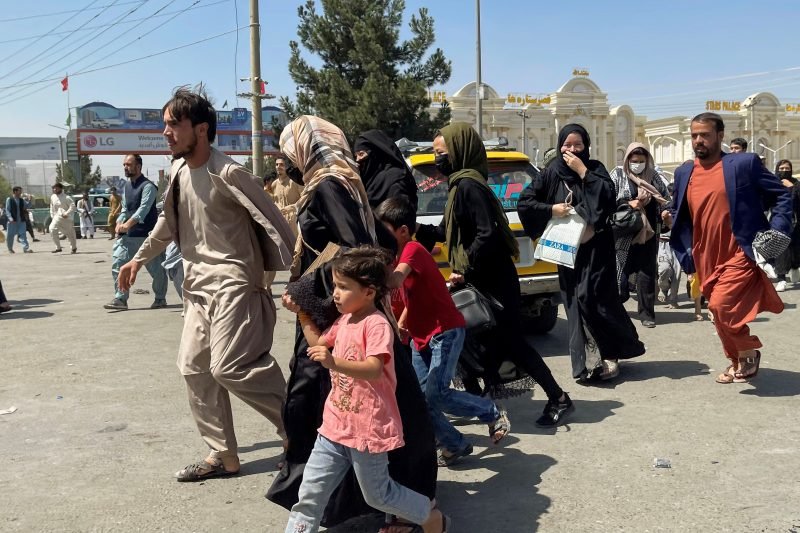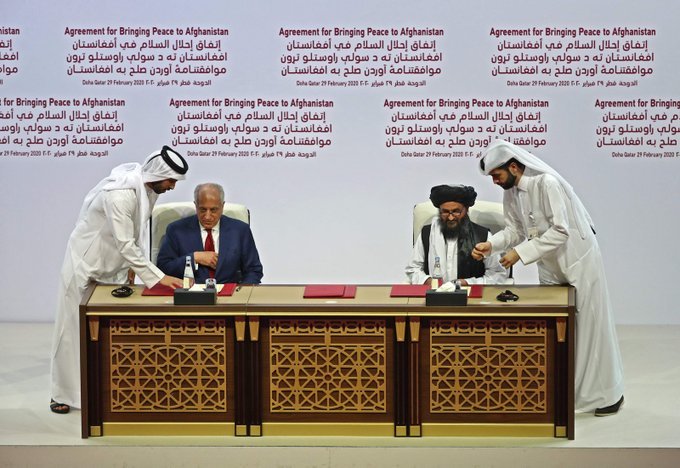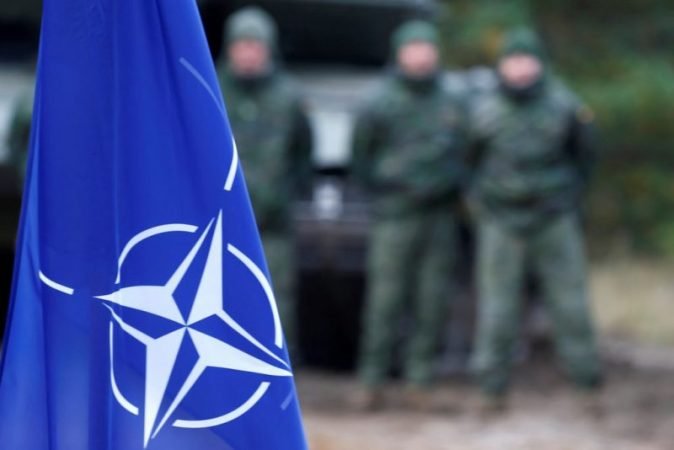Is the West responsible for the evacuation chaos in Afghanistan?

The resignation of the Dutch Foreign Minister, Ms Sigrid Kaag, over the evacuation chaos in Afghanistan in September 2021 resurfaced the debate around the role of the western powerhouses in the failure of organised and systematic evacuation in Afghanistan. Ms Kaag had to step down from the position following a Dutch Parliamentary motion to castigate her for the unsatisfactory role of the Dutch cabinet in rescuing Afghan residents from Kabul post Taliban’s re-emergence, in August. This made Ms Kaag the first foreign minister to resign over the Afghanistan evacuation dilemma.[1]
Soon after Ms Kaag resigned as the Dutch Foreign Minister, the Dutch Defence Minister Ank Bijleveld was also sacked by the Parliamentary motion. The surprise element in these resignations was the press conference that followed it, where Ms Kaag confessed that the Dutch Government devised evacuation strategies based on “wrong assumptions” and had been slow to respond to the signs of a rising Taliban in Afghanistan.[2]
With that being said, the Dutch Government was not the only western government that acted slowly and indecisively vis-à-vis the Afghanistan evacuation crisis. The Foreign Secretary of the U.K., Ambassador Dominic Raab, was subjected to heavy criticism from opposition parties for remaining on vacation despite the fall of Kabul in the middle of August; resulting in the failure of the evacuation many Afghan interpreters and officers working for the U.K. Embassy and other U.K. offices in Afghanistan. Ambassador Raab was replaced as the Foreign Secretary of the United Kingdom, only to be promoted as the Deputy Prime Minister of the country; a highly political decision that hints about the negligence and unwillingness of the U.K. government to amend its errors related to evacuation in Afghanistan.[3]
While most of the European countries that involved in the evacuation process had committed errors in strategizing the evacuation programme, it is vital to analyse the role of the United States; not only in the evacuation chaos, but in the whole crisis of Afghanistan.
The role of the United States in the Afghan crisis
As argued by many commentators of international relations, the two main personalities behind the haphazard withdrawal of NATO troops that in turn resulted in the mass emergency evacuation scenario, were Former President of the United States, Donald J. Trump, and the former United States Envoy for Afghanistan, Ambassador Zalmay Khalilzad. The 2019 Doha Agreement, popularly referred to as the US-Taliban Peace Deal, was a highly political move of the Republican President in order to increase his chances of getting re-elected as the President by trying to abruptly end the “endless war” in Afghanistan. According to research studies published in Warsaw Institute, majority of the Americans viewed the military intervention of the United States in Afghanistan as a major failure of the country. While President Trump had missed to make a positive impression on so many other avenues of governance, it is evident that he tried lobbying for the signing of this deal for his own political interests. It was rather surprising when the Biden Administration refused to reverse the Doha Agreement that advocated for the abrupt withdrawal of the NATO forces from Afghanistan for superficial returns, such as urging Taliban to cooperate with the Afghan government and severing ties with Al Qaeda. The only possible conclusion that can be drawn from Biden Administration not reversing the deal was his administration’s keen interest for the United States to drop any and all responsibilities of safeguarding peace and security in Afghanistan owing to huge economic implications; despite the administration being completely aware of the credibility of the Taliban. Nevertheless, the hasty decision of the United States to withdraw from the region without evaluating the security risks in Afghanistan resulted in the re-emergence of the Taliban and arose the need for mass emergency evacuation.[4]

The former U.S. Envoy for Afghanistan, Ambassador Khalilzad, has been heavily criticised for his contribution to the Doha Agreement in 2019. Khalilzad has been accused of having presidential aspirations by his Afghan counterpart Hamdullah Mohib, the former National Security Advisor of the Afghan government. Mohib had voiced out his concerns on how Khalilzad executed President Trump’s directives according to his whims and that he deliberately avoided updating the Afghan government about the progress in the peace deal between the United States and the Taliban. The U.S Envoy for Afghanistan was further accused of delegitimizing the Afghan government while legitimizing the Taliban and working on deals that favoured the fundamentalist insurgent group. “We get bits and pieces of information, we don’t have the kind of transparency that we should have. There isn’t proper access to information. The last people to find out are us,” conveyed Mohib with frustration to the media in Washington.[5] While one has to delve deeper into the personal interests of Ambassador Khalilzad to evaluate Mohib’s claims, the recent resignation of Khalilzad, unlike ambassadors of the United Kingdom and the Netherlands, did not come off as a surprise.
Ambassador Khalilzad, who had served under President Trump, was expected to leave the office immediately after Joseph Biden won the presidential elections as newly elected presidents generally appoint their own team in key positions. However, President Biden continued with Khalilzad until the United States completely retreated from Afghanistan. One may speculate that the Biden Administration continued with Trump’s officer so that the government can entirely shift the blame onto him and portray his resignation as though he stepped down due to his failure in controlling key incidents such as evacuation and organized withdrawal from Afghanistan. News agencies, such as the CNN, has gone ahead and proved this speculation by considering Khalilzad’s resignation as a result of chaotic Afghan evacuation.[6] However, this does not dilute the fact that the United States not only failed to conduct an organized evacuation programme in Kabul, but is also the primary reason for the re-emergence of the Taliban and the emergence of this emergency evacuation situation.
Was there really a need for mass emergency evacuation from Afghanistan?
The fall of Kabul and the re-emergence of the Taliban in Afghanistan in August created unexpected levels of chaos and panic across the world. Afghan residents, especially women and girls, felt extremely insecure and unsafe with the rise of these insurgents as Taliban’s rule pre-2001 NATO intervention was cruel and gruesome; especially towards women and girls. The Taliban had imposed severe social restrictions against women and highly regulated their access to healthcare and education among other impositions. Women were supposed to wear Burqa throughout; and were disallowed to be present in public spaces without a male companion. They were also prohibited from working or having any rights over ancestral property. In fact, the Afghan Government under President Ashraf Ghani urged the United States led-coalition forces not to withdraw from the region citing the safety of women and girls as a reason.[7] Therefore, the re-emergence of the Taliban only heightened the insecurity of Afghan residents despite Taliban’s promise to extend substantial degree of rights to women and girls such as allowing them to pursue their education.[8]

One of the primary goals of the Taliban is to resurrect the prominence of Islamic values and revive the Afghan culture that was tainted with western influence for the last forty years, according to many Taliban leaders. The Taliban’s rule has been welcomed mostly by conservative rural Afghan villages while modern and post-modern Afghan cities shiver with fear and insecurity. One of the reasons for the increased insecurity among urban-dwellers was the targeted assassinations and suicide bombings that were carried out by the Taliban during the reign of President Karzai and Ghani in Kabul. Secunder Kermani, through his fieldwork, observed that the notorious reputation of the Taliban in the past has a negative impact on its credibility while committing to relaxations and concessions in the way of living.[9] Due to this, numerous Afghan residents desperately tried to flee from the country; only to be greeted by chaotic and unorganised evacuation process facilitated by the western nations that resulted in so many Afghan residents, both local and international, to be left behind.
What could these nations have done differently?
Although European countries such as Germany, Spain, Netherlands and France clearly conveyed to President Biden that they will not be in a position to evacuate all Afghans in need of protection if the United States adhered to the August 31 deadline, Biden was hellbent on ceasing all evacuation operations by the said date. This disrupted the evacuation programme of various western countries that had earlier committed itself to rescue all Afghans that needed protection from the Taliban.[10]
While it is true that the Biden Administration had already extended the deadline a few times and that the Taliban vehemently opposed any more extensions, the United States did have the authority and influence to put its foot down and demand for an extension. One may speculate that the Taliban tightened its demands to the United States after the fall of Kabul as it didn’t want to give room for NATO to even think of re-intervening into Afghanistan; although the weary U.S. led-NATO would not re-intervene even if provided with a chance. However, if the United States and other western nations that were involved in the evacuation process appeared to carry out only the evacuation programme, one may come to a conclusion that the Taliban would have accepted the request for extension by a few weeks. Another reason for the Taliban to accept this request is for trying to establish amicable relations with influential western nations such as the United States, the United Kingdom and France. The recognition of the Taliban government in Afghanistan by western powers is vital for the Taliban in order to compensate for the economic losses that were incurred during the fall of Kabul. It is to be noted that foreign aid played a major role in Afghan government’s budget. With the re-emergence of the Taliban, almost three-fourths of the national budget is out of access for the Taliban.[11] Neither will countries such as China invest in Afghanistan anymore due to massive risk of macroeconomic instability. Therefore, the United States could have pressured the Taliban into accepting the extension of evacuation deadline by a few more weeks; that would’ve eliminated the haphazard and unorganized evacuation that happened in August.

What is the next step for the international community?
While the G20 nations have pledged to inject cash into the Afghan economy in order to prevent the economy from crumbling, the means of executing this is really important. Although President Biden pointed out that the aid had to be provided through independent international organizations rather than handing it over to the ruling Taliban, whether these international organizations are being given adequate autonomy by the Taliban within Afghanistan to channelize funds according to their own discretion is a question mark.[12] With the entirety of the NATO troops retreated from the region and with the defeat of the Afghan Army, there is really no authority to prevent the Taliban from accessing such foreign aid within Afghanistan.
Therefore, the international community must not provide foreign aids to Afghanistan but involve in mooting development projects at the civil and societal level in Afghanistan with Afghan non-state actors such as students, teachers and lawyers; legitimizing their say in the development of the region. These nations could also reboot the economic relations with Afghanistan provided the Taliban are keeping up with their promise of ensuring better human rights record and providing with substantial rights for girls and women under their regime. The international community, especially developed nations from the West must make use of this ‘economic diplomacy’ to restart the evacuation process that was abandoned halfway due to the tight deadline. While these policies might not work instantaneously with the Taliban, their desperation for reviving the Afghan economy will lure them into agreeing to most of these demands, if not all; provided these policies are executed properly.
[1] “Dutch Foreign Minister Sigrid Kaag quits over Afghanistan chaos.” BBC (2021). Dutch Foreign Minister Sigrid Kaag quits over Afghanistan chaos – BBC News
[2] Ibid
[3] “Who is Dominic Raab? Karate black-belt who is no stranger to controversy.” BBC (2021). Who is Dominic Raab? Karate black-belt who is no stranger to controversy – BBC News
[4] Lyjak, Jakub. “US Evacuation from Afghanistan: Haste Makes Waste.” Warsaw Institute (2021). US Evacuation from Afghanistan: Haste Makes Waste | Warsaw Institute
[5] Hansler, Jennifer & Atwood, Kylie. “Senior Afghan official accuses US Envoy of ‘delegitimizing’ Afghan government.” CNN (2019). CNN – Breaking News, Latest News and Videos
[6] Marquardt, Alex & LeBlanc, Paul. “US Envoy for Afghanistan steps down following chaotic evacuation.” CNN Politics (2021). Zalmay Khalilzad: US envoy for Afghanistan steps down following chaotic evacuation – CNNPolitics
[7] Allen, John R. & Flebab-Brown, Vanda. “The fate of women’s rights in Afghanistan.” Brookings (2020). The fate of women’s rights in Afghanistan (brookings.edu)
[8] “Afghanistan: Taliban announces new rules for female students.” BBC (2021). Afghanistan: Taliban announce new rules for female students – BBC News
[9] Kermani, Secunder. “Afghanistan: Life under Taliban rule one month on.” BBC (2021). Afghanistan: Life under Taliban rule one month on – BBC News
[10] AFP, “Taliban issue new warning against evacuation of skilled Afghans, as deadline looms.” The Hindu (2021). Taliban issue new warning against evacuation of skilled Afghans, as deadline looms – The Hindu
[11] Glinski, Stefanie. “Afghanistan’s Economic Freefall.” Foreign Policy (2021). Under Taliban, Afghanistan Has No Money and Few Prospects (foreignpolicy.com)
[12] “Afghanistan crisis: G20 leaders pledge to avert economic catastrophe.” BBC (2021). Afghanistan crisis: G20 leaders pledge to avert economic catastrophe – BBC News



















